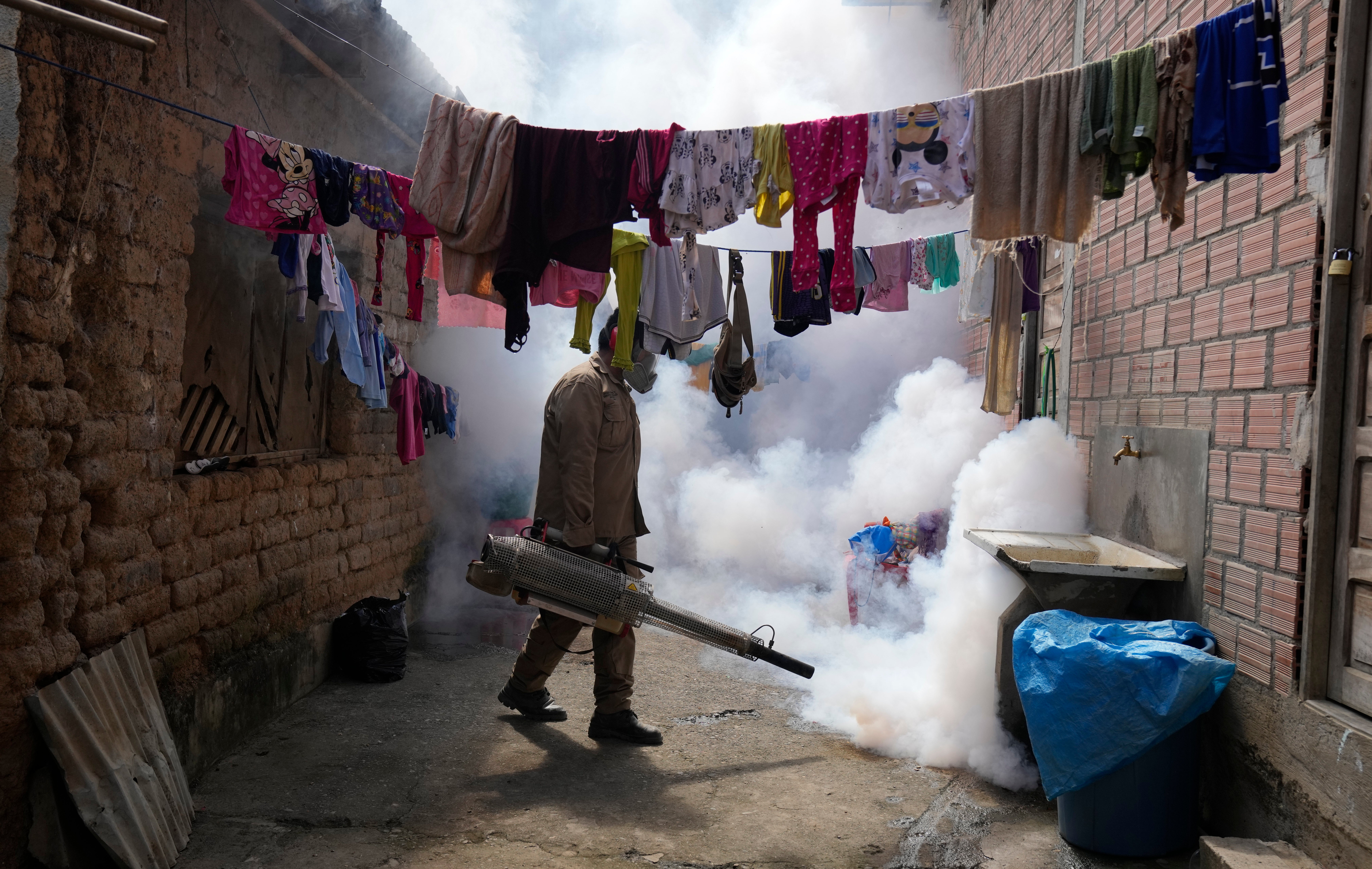UN health agency cites tenfold increase in reported cases of dengue over the last generation
The U.N. health agency says it has tallied a tenfold increase in the global count of reported cases of dengue over the last generation, with climate change and the growing spread of virus-carrying mosquitos in part to blame for transmission that remains mostly prevalent in the Americas

The U.N. health agency said Friday that reported cases of dengue globally increased tenfold over the last generation, with climate change and the growing spread of virus-carrying mosquitoes partly to blame for transmission that remains mostly prevalent in the Americas.
The World Health Organization said reported cases soared to a record 5.2 million in 2019, up from 500,000 in 2000, across 129 countries worldwide, figures that likely understate the actual toll.
In January, WHO warned that dengue posed a pandemic threat and was the world’s fastest spreading mosquito-borne disease. While there are vaccines and specially bred mosquitoes containing a bacteria called Wolbachia to fight dengue, there are no specific treatments for the virus once someone becomes infected.
This year, more than 5 million cases and over 5,000 dengue-related deaths were reported, WHO said. Changing distribution patterns of the mosquitoes that spread dengue, together with higher rainfall, humidity and heat linked to climate change, have been factors in the rise.
Weaker health systems and poor surveillance have also played a part.
Most cases of dengue don’t cause symptoms or cause mild illness, though some infections can result in shock, severe bleeding and organ impairment – symptoms that typically emerge after fever has faded, WHO said.
Warning signs include intense abdominal pain, persistent vomiting, bleeding gums, fluid accumulation, lethargy or restlessness, and liver enlargement, the agency said. Repeat infections can result in severe disease, which can cause hemorrhaging and death.
Dengue swept across the Western hemisphere this year. It isn’t established in Europe, though some locally spread cases have turned up in the southern part of the continent since 2010.
Regions including the Americas, the Caribbean and Bangladesh have reported record numbers of cases in 2023.
The Americas, which has about four-fifths of the world's dengue cases, broke the previous regional record for dengue earlier this year, with Brazil, Argentina, Paraguay and Peru reporting the most cases worldwide. Peru declared a state of emergency in some areas after reporting a historic number of cases.
There are two licensed vaccines for dengue, although experts say one of them should only be used in people who have previously been infected, otherwise they could face a risk of more severe disease.
Bookmark popover
Removed from bookmarks